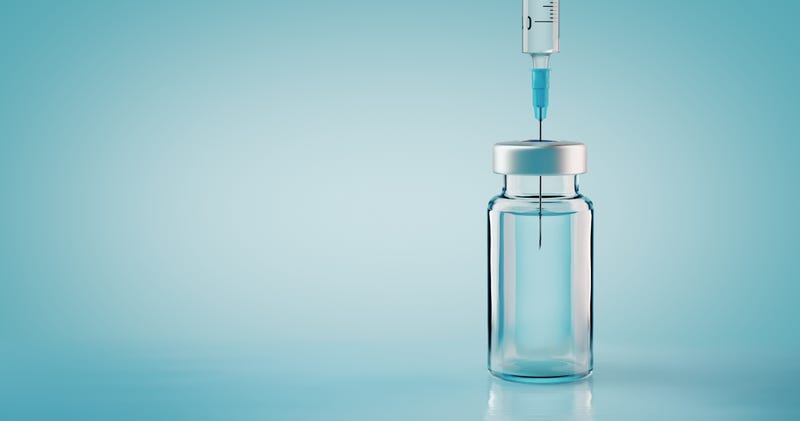
A new oral treatment for COVID-19 is on the precipice of becoming available, with the ability to seemingly lessen the symptoms of the virus.
Drug company Merck reported promising results earlier this month, and approval is being anticipated with bated breath, possibly paving the way for future innovative treatment options.

The current most frequently used treatment for COVID-19, the antiviral remdesivir, has to be administered intravenously and has yet to be successfully made into a pill.
It's just not as "attractive" an option for people, having to go in multiple times to get an IV infusion, said Dr. Andrew Pavia, Chief of Pediatric Infectious Diseases at the University of Utah on KCBS Radio's "Ask an Expert" with Holly Quan and Dan Mitchinson.
It's difficult to predict how long things will take for the FDA to process Merck's drug, but if all goes well, the pill could be out as soon as the beginning of next year, he said.
But that hinges on several caveats.
Experts can't take their findings at face value, they have to dig deeper, analyze the full dataset, and assess the safety of the drug, said Pavia. "Side-effects seem pretty mild," he said. "But this is a new class of drug in the way it inhibits the virus replicating."
There is a theoretical concern that this could have an effect on the way human cells mutate, said Pavia. Careful scrutiny is needed. The way the pill works is that it creates too many mutations that the virus can't "tolerate." But it’s unclear if it can also do the same thing in human cells.
But it's unclear if it can also do the same thing in human cells.
This can have more dire effects on certain groups, such as pregnant women, where it could harm the fetus. People in their 50s and 60s may not be affected by a few cell mutations. And it might not even be an issue at all.
"I just want people to be cautious and not start celebrating just yet," he said.
There are at least two other pill treatments in the works that are likely to be most effective if administered early. "That's really in the long run what we are going to need," said Pavia. A drug that can be given when people first start showing symptoms, to better help prevent people from getting sicker along with diminishing the chance of transmission and getting long COVID-19.
Other innovations might be on the horizon as well, such as vaccines that don’t need to be kept cold and are more easily transportable to rural areas, or vaccines that can be combined with the flu shot so people don’t need to get jabbed as often, and perhaps even oral vaccines, said Pavia.

